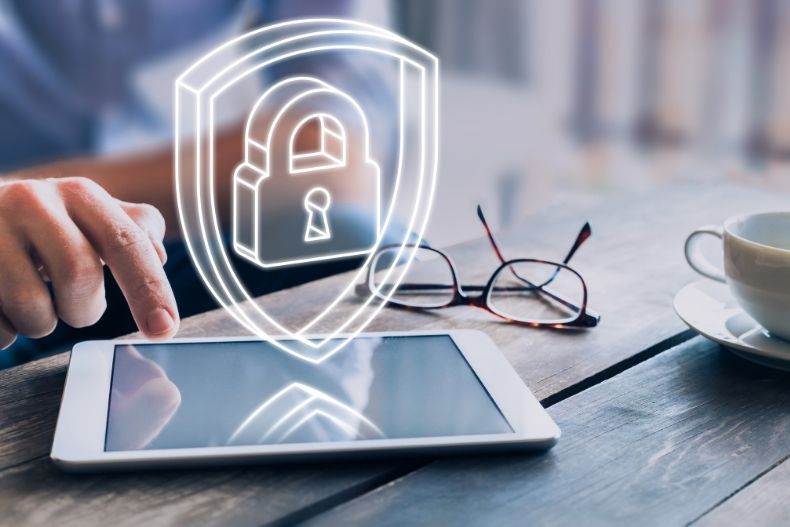There has been an increase in data breaches and cyberattacks in recent years. Hackers are always after information, and the threats keep becoming more complex. The corporate world is no exception to cyber-attacks. These threats mean that corporates have to be aware of the current threats and work twice as hard to protect their corporate data.
Here are some ways that corporates can protect their company data.

-
Prioritize Cyber-Security and Put up a Cyber-Strategy
To protect your company against cyber threats, you need to know that, like everyone else, you are also vulnerable. Thinking it cannot happen to your company is the wrong attitude that many companies destroyed by cyber-attacks. To protect your firm, you first need to take cyber threats seriously and make security a top priority. To set up a strategy, you need to assess and classify all your data and determine what security level to accord each data class. One of the principal elements in the strategy needs to be ensuring you have adequate and secure controls. These controls should be appropriate for the sensitivity level of each data class. Keep looking out for any developments in terms of new cyber threats and security tools.
-
Install an Anti-Virus and Ensure It Stays Updated
Anti-virus protects your system from any malicious software such as botnets, ransomware, Trojan horses, etc. Installing an anti-virus ensures that it is eliminated before it can damage if there is a threat. Anti-virus software developers keep updating the software to seal any security vulnerabilities. Hackers use the vulnerabilities from the previous versions to hack into any un-updated versions. It is therefore crucial that assess and classify to avoid such attacks. When software developers come up with a new version, they make public the previous version’s vulnerabilities. The latest version consists of security patches for the earlier version. If you have not updated your anti-virus software, the hackers use the publicized vulnerabilities and target un-updated versions.
-
Promote Employee Awareness
Most cyber-security breaches occur due to employee negligence, either intentional or unintentional. Employees often fall for phishing scams or inadvertently expose sensitive company data when using mobile devices on public Wi-Fi networks.
One of the top strategies would be to educate your employees on possible cyber threats and spot them. The employees need to understand the risk involved and report any suspicious links instead of clicking on them. You can assign an information security officer to train the staff on new threats and protect data regularly.
-
Enforce Strict Password Policies
Most people have heard more than once about password policies and best practices. However, most do not take these best practices, and this causes most peoples’ accounts to get hacked for using easy passwords. Other than using a password manager for creating unique passwords, the employees need to remember to keep changing their passwords. They should never re-use the old passwords for more than one account or write down the passwords on a text file, paper or in the cloud. You should encourage the use of two-factor or multi-factor authentication, which requires an extra OTP (One Time Password) to access data. The OTP is sent via text or email to a trusted device such as a mobile phone. The employee uses their password, then enters the OTP to gain access. A password should be easy to remember but hard for anyone else to guess and should be alphanumerical with some special symbols.
-
Have Backup
If you get attacked by ransomware or other attacks and cannot access your data, a backup comes in handy. Hackers can easily blackmail a company with no backup for its data into parting with a significant amount of money for the data. A natural disaster like a flood or fire can wipe out your data, but you can quickly restore the data with backup, and you are assured of business continuity.Using a hosted service or the cloud to store data is no backup. You can contact a company that exclusively deals with data backup that will be solely responsible for keeping your data safe.
-
Encrypt Your Data
The best and most secure way to protect your data is to encrypt it. There are various encryptions, but one of the best is end-to-end encryption. This encryption happens on the client-side, ensuring all your data is encrypted before it is sent from a device and in transit. This means no one can decrypt the data without a key except you and the recipient.
Conclusion
Hackers improve their techniques every day, and they target corporate data that fetches a lot of money on the dark web. You have to secure your data to ensure it does not fall into the wrong hands. Installing security software, using strong passwords and data encryption are some of the mitigation methods you can use. Perhaps the most critical mitigation is employee awareness, as they are the weakest link used by hackers. Once they are aware, it is easy to use the other techniques.